When visitors, particularly primary and secondary school teachers and students, step into the lobby of the Cultural Building at the University of Macau (UM), they are often awed by the huge painting of the majestic landscape of Mount Tai and a display case showcasing the numerous academic publications authored by UM faculty members and students. The UM Cultural Building exudes a profound cultural ambience and is home to the Macao Base for Primary & Secondary Education in Humanities & Social Sciences, which is dedicated to promoting Chinese culture and cultivating humanistic qualities in students.
Sparing no effort in nurturing adolescents in Macao
It is stated in The Analects: ‘Those wishing to be established himself seeks also to establish others; those wishing to be enlarged himself seeks also to enlarge others.’ Confucianism advocates practising benevolence from an early age as a way to cultivate one’s moral character and inner qualities. The base, through the cultural landscape of the Cultural Building and the spread of knowledge outside the university, aims to promote liberal arts education in primary and secondary schools and foster youth development with the theme of humanity.
In 2018, the base was established under the leadership of UM Rector Yonghua Song. During the inauguration ceremony, Prof Song expressed the university’s commitment to creating a better learning environment for Macao adolescents to flourish, driven by a sense of social responsibility and lofty aims. Initiated by UM and jointly established by Macao Foundation, the Education and Youth Development Bureau, the Chinese Educators Association of Macau, and Macao Catholic Schools Association, the base comprises UM’s Centre for Chinese History and Culture, Centre for Macau Studies, Centre for Arts and Design, Confucius Institute, Chinese-Portuguese Bilingual Teaching and Training Centre, Faculty of Arts and Humanities, Faculty of Education, Faculty of Law, Faculty of Social Sciences, etc.
Since its inception, the base has used the university’s academic resources to work with educational institutions as well as primary and secondary schools in Macao. It supports the teaching of humanities and social sciences at local schools, with the aim of creating a better learning environment for students to develop basic understanding in fields such as literature, linguistics, history, art and design, philosophy, and sociology in secondary schools.
Helping students gain a broader perspective
Throughout ancient Chinese history, literary figures such as Du Fu and Su Shi, as well as military figures such as Yue Fei and the generals in the Yang family, were renowned for their unwavering commitment to serving their country. This spirit of loyalty has been ingrained in the hearts of contemporaries through tumultuous times and passed down to future generations as a cherished humanistic trait. At the base, while teaching students the classics of Confucianism and elucidating the essence of its philosophy, experts and scholars also emphasise the noble ethic of ‘Being the first to worry about the nation’s woes and the last to share in its prosperity.’ They encourage students to become responsible global citizens and to be sincere and diligent in their endeavours.
To increase adolescents’ enthusiasm for Chinese culture, the base launched the Chinese History and Culture Promotion Ambassador training programme. The programme empowers students to leverage their strengths in their studies and promote the rich heritage of Chinese culture to the public. Guided by Prof Zhu Shoutong, director of the Centre for Chinese History and Culture, students produce and publish the Macao Teenager’s Newspaper, a publication tailored to primary and secondary school students. The newspaper brings idioms to life through comic strips and captures the essence of poetry with vivid expressions. It recounts Macao’s history through engaging anecdotes and showcases China’s latest technological advancements. The newspaper has been well received by young readers, and it even features contributions from secondary school students who share moments of their life through writing.
In addition, the base is dedicated to enhancing primary and secondary school students’ soft skills by immersing them in Chinese classics and traditional Chinese culture, while also introducing them to Chinese and Western arts, intercultural communication skills, and dialectical thinking. With this holistic approach, the base nurtures students’ inner qualities, empowering them to actively participate in the development of Macao, and even the whole country.
The virtue of self-cultivation and family management has been passed down for thousands of years in Chinese culture, and it serves as a fundamental principle in educating students to become advocates of Chinese history and culture. Prof Zhu stresses: ‘In addition to excelling in their own professional fields, the future leaders of a nation must also possess genuine passion for humanity, which enables them to have a broader vision and perspective.’
Inheriting a rich heritage of philosophy
With the rapid development of intelligent technologies, today’s society gives weight to fostering harmonious relationships between man and nature and among individuals, as well as satisfying the deepest human longings, thus underscoring the growing importance of humanities. Prof Zhu notes that Chinese culture is inclusive and comprehensive as it draws from the wisdom of various ancient philosophies, including Confucianism, Daoism, Mohism, and Legalism, which all prioritise enriching the human spirit. In line with this, the base is committed to preserving the teachings of Chinese philosophers and integrating them into liberal arts education.
The base has formed close partnerships with 11 local primary and secondary schools that share a common mission of promoting Chinese culture. Leveraging the academic strengths of the university, the base collaborates with schools to offer liberal arts education that incorporates the philosophies of ancient Chinese sages in order to nurture moral and humanistic qualities in students from a young age. ‘The base offers students a variety of extracurricular activities, such as the Festival of Chinese Culture, events for classics reading, poetry writing, performances of painting and poetry recitation, talent contests, fairs, and workshops. These activities provide an opportunity for them to appreciate ancient Chinese philosophies and the beauty of traditional Chinese culture in a fun and engaging way,’ says Prof Zhu.
In one of the recitation competitions, secondary school students from Saint Paul School, guided by instructors at the base, combined recitation and martial arts to showcase the beauty of poetry and Chinese culture. Their performance of ‘Wu Yi’, a patriotic poem from the Odes of Qin in the Book of Poetry, was so impressive that it earned a first prize. This achievement also demonstrates the base’s success in promoting Chinese culture among local students.
Supporting basic education in literature, history, philosophy, and arts
According to Shi Shuo (which means ‘On Teachers’), in ancient times, those who wanted to learn would seek out a teacher who could propagate the doctrine, impart professional knowledge, and resolve doubts. ‘Since no one is born omniscient, who can claim to have no doubts?’
For this reason, the base places a great emphasis on teacher training, which is crucial to ensuring and improving the quality of education. In addition to educating adolescents, the base also actively works with schools to enhance teacher training through activities, discussions, and exchanges. This approach aims to empower teachers to become the backbone of basic education in areas such as literature, history, philosophy, and the arts. For instance, the base has collaborated with the Education and Youth Development Bureau to offer certificate programmes for primary and secondary school teachers. Professors from UM as well as renowned experts and scholars from Macao are also invited as guest speakers to share their insights and knowledge, with a particular focus on improving local teachers’ skills in teaching Chinese history and culture.
Every year in December, the base organises the Macao Forum on Humanities and Social Science Education in the lobby of the Cultural Building. The forum brings together experts and scholars from China and abroad to discuss various topics, from creating a humanistic school environment to exploring innovative curriculum design. Participants include experienced educators in Macao, leaders of Macao primary and secondary schools, representatives of the Chinese Educators Association of Macau and the Macao Catholic Schools Association, as well as over 100 teachers from local schools. The event aims to strengthen academic and cultural exchanges between Macao’s basic educational institutions, and set goals for developing students’ skills in logical thinking, aesthetic appreciation, and cultural promotion.
Macao, with its unique identity as a city that bears witness to the cultural interchange of East and West, presents a special context for education. In recognition of this, the base extends its teacher training programmes to primary and secondary schools in Macao whose students do not speak Chinese as their first language. Collaborating with the Centre of Languages of the Education and Youth Development Bureau, the base organises workshops on teaching Chinese as a second language in schools. The workshops invite linguistics experts from Macao and experienced Chinese language teachers to share their teaching experience with participants and discuss how to help students apply their knowledge in practical ways and evaluate traditional teaching methodologies. Prof Chen Zhong, deputy director of the Confucius Institute, notes that the base also facilitates exchanges on child psychology and curriculum design to enhance teachers’ language teaching skills.
Stimulating imagination and creativity through art
Cheers to Macao!, which is currently on display at the Centre for Arts and Design of UM, located on the first floor of the Cultural Building, is an art piece formed by gilded blue-and-white porcelain pieces resembling beer cans of various shapes. The artwork features a range of Macao-related elements, including historical documents, images of the iconic Ruins of Saint Paul’s, traditional Portuguese tile patterns, and the logo of Macau Beer. As a cultural and creative product inspired by Macau Beer, the artwork represents a postmodern take on Jingdezhen blue-and-white porcelain. More than just a work of art, Cheers to Macao! pushes the boundaries of art and design and inspires students and visitors to think about the fusion of art and technology.
Cheers to Macao! was created by Lampo Leong, director of the Centre for Arts and Design, and his PhD student Yang Chao. The work is a presentation of the integration and co-existence of Macao’s diverse cultures. The Centre for Arts and Design regularly presents masterpieces by internationally acclaimed artists, including Xu Lei’s The Commander, a large mixed-media painting, and conceptual art by Zhu Legeng based on his famous ceramic sculptures of horse busts. The artwork exhibited at the centre is characterised by a rich diversity of artistic expressions, blending reality with imagination, and figuration with abstraction.
There is much to learn about the expression of meaning, form, and use of colour behind each artwork. ‘Art stimulates our perceptual thinking, imagination, and creativity,’ says Prof Leong. ‘And humans have a long history with art, from the West to the East, from ancient to modern times, and that involves a huge and complex body of knowledge. We need to start with basic education and cultivate students’ aesthetic awareness through systematic learning from an early age. We hope that students can develop their critical thinking and art appreciation skills in the process of viewing and critiquing art pieces.’
‘Basic education in art aims to enhance students’ aesthetic literacy, observation skills, and critiquing skills. What sets art apart from subjects like mathematics and science is that there is no model answer. Instead, art encourages students to draw on a variety of reference systems to seek unique and creative solutions themselves,’ adds Prof Leong.
Cultivating bilingual talent starting from basic education
‘Tomorrow night, when the moon is full, place the tangyuan to the northwest of the house and call my name over and over, I will be home at midnight.’ This line comes from the well-known Chinese mythological story Chang’e Flying to the Moon. Prof Ana Nunes, deputy director of the Chinese-Portuguese Bilingual Teaching and Training Centre, along with two of her students, presented the story in the form of a drama to Portuguese-speaking students for them to learn about the origins of the Mid-Autumn Festival.
This story is one of the traditional Chinese stories included in the Chinese History and Culture Comic Book Series designed for adolescents from Portuguese-speaking countries. To date, there are four published books in the series, each with captions in Chinese, Portuguese, and English. ‘The book series features highly accessible text and is designed to help students of Chinese-medium schools learn Portuguese or English and develop an interest in Chinese culture in a fun and engaging way. In addition, we have also compiled Portuguese textbooks and other multimedia materials that are tailored to local students,’ says Prof Yao Jingming, director of the Chinese-Portuguese Bilingual Teaching and Training Centre.
‘Macao’s unique historical background makes it an excellent environment for language learning. With the support of our strong faculty, we will continue to assist primary and secondary schools in nurturing high-calibre bilingual talent from the basic education level, in order to strengthen Macao’s role in promoting cultural exchanges between China and Portuguese-speaking countries,’ adds Prof Yao.
Developing the intercultural communication skills of primary and secondary school students
In the era of digital globalisation, intercultural exchanges are becoming increasingly common. In recent years, Macao, with mainstream Chinese culture and the coexistence of other diverse cultures, has taken on a new mission to strengthen international exchanges and serve as a bridge between China and the rest of the world. Moreover, Macao’s Medium- and Long-term Planning for Non-Tertiary Education (2021-2030) also underscores the importance of strengthening students’ intercultural awareness and broadening their global vision to prepare them for the globalised society of the future. To fulfil this mission and vision, the base has placed significant importance on supporting primary and secondary schools in developing students’ intercultural communication skills. This includes teaching them to respect other cultures, while fostering an inclusive and open-minded attitude.
Fei Xiaotong, a Chinese sociologist, once proposed that if people can cherish the beauty of their own culture while respecting that of others, the world will become one. This philosophy of cultural inclusiveness is also the vision upheld by the base in promoting cultural exchanges between China and the rest of the world. Prof Xu Jie, director of the Confucius Institute, points out that Confucianism embodies the essence of Chinese culture. While passing down the philosophy from one Chinese generation to another, the base is eager to share it with the whole world. ‘We aim to provide education in Chinese language and culture for students from Macao, Portuguese-speaking countries, and other countries who do not speak Chinese as a first language. We also help students of different nationalities adapt to the multicultural environment of Macao through our workshops and the Culture Corner,’ he says.
Sparking primary and secondary students’ interest in research from an early age
Dr Leong Chi Man, a guest lecturer of the base, discovered a new species of ant in 2017 and the ants are assumed to originate from the forests on Macao’s Ilha Verde hill. ‘I named this species Leptanilla macauensis and peculiarly the queen ant has no wings,’ he says. During his talk at Escola Tong Sin Tong, Dr Leong shared his journey of becoming an entomological researcher and his experiences conducting entomological research in different parts of the world. The talk was part of the Educational Talk Series launched by the Centre for Macau Studies (CMS). The secondary school students in the audience were captivated by Dr Leong’s talk and learned about the crucial role of insects in maintaining a healthy ecosystem.
As one of the lecture series of the base, the CMS Educational Talk Series seeks to cultivate students’ cultivate students’ critical thinking skills and encourage them to explore their research interests through learning from the experiences of guest lecturers. Prof Agnes Lam, director of the Centre for Macau Studies, believes that there is no age limit for research and students in primary or secondary schools can also apply scientific thinking to investigate current social issues. ‘That’s why we attach great importance to training students’ ability to identify problems. We introduce them to the research conducted by Macao scholars, so that they can stand on the shoulders of their predecessors and make further achievements,’ says Prof Lam.
‘Our task is to spark local primary and secondary students’ interest in research from an early age. We hope to enhance their ability to identify problems and come up with solutions. By doing so, they will be better equipped to contribute to Macao when they grow up, regardless of their profession,’ she adds.
Text / Kelvin U, Trainee UM Reporters Dong Lexuan and Lei Bijia
Photo / Hasen Cai, Editorial Board, with some provided by the interviewee
Video / Hasen Cai, Senior UM Reporter Liu Yuxin, UM Reporter Si Tu Wan I, Trainee UM Reporters Ye Haoqi, Liu Chenxin and Tan Hsiang I
English Translation / Winky Kuan
Source: My UM ISSUE 123
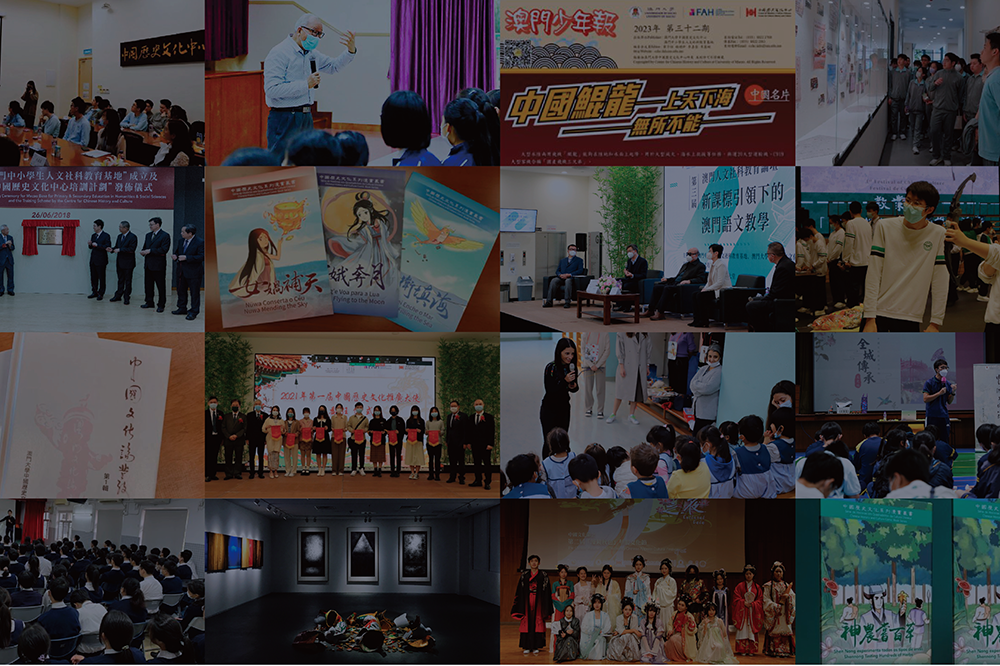
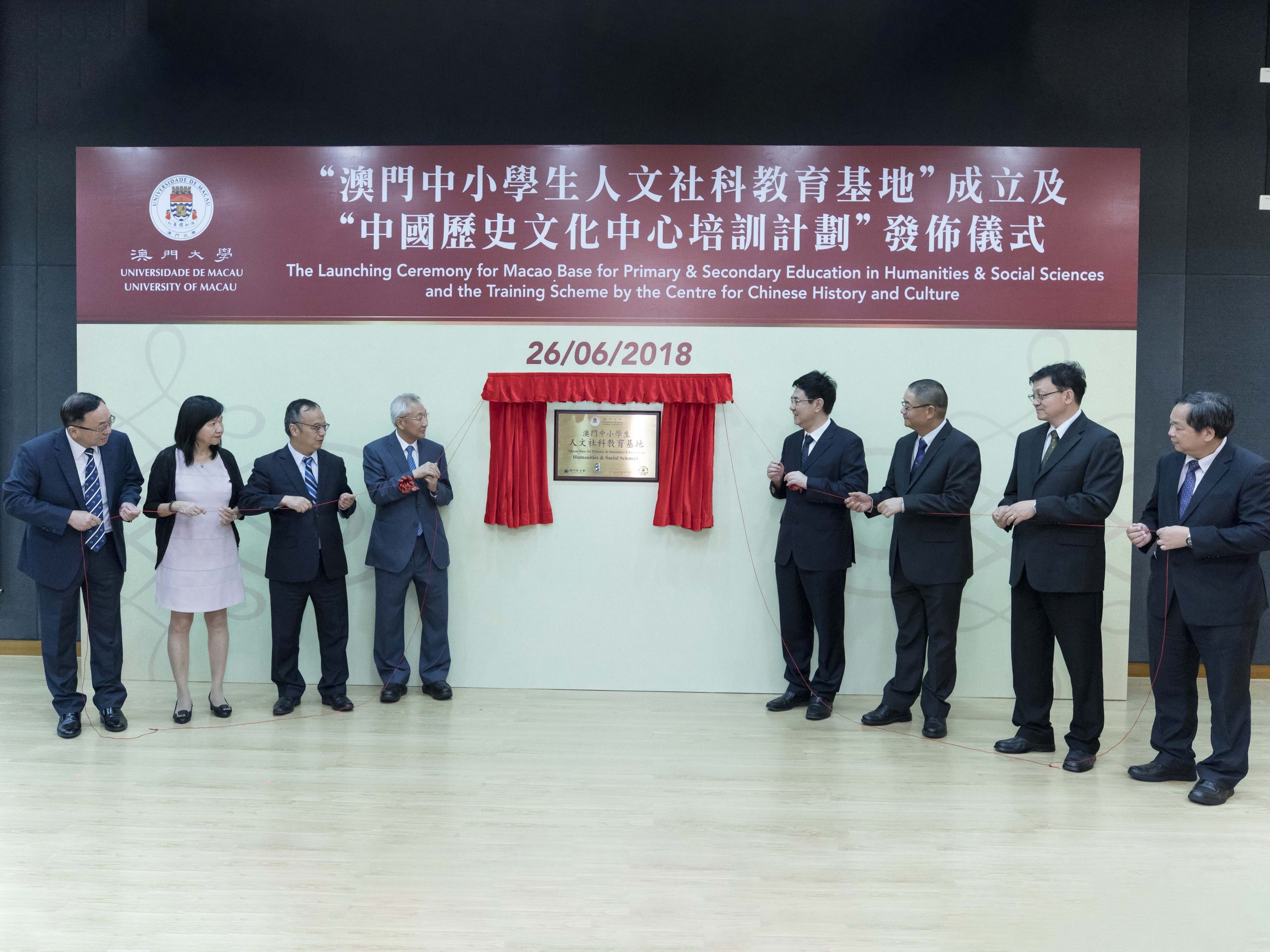
UM established the Macao Base for Primary & Secondary Education in Humanities & Social Sciences in 2018
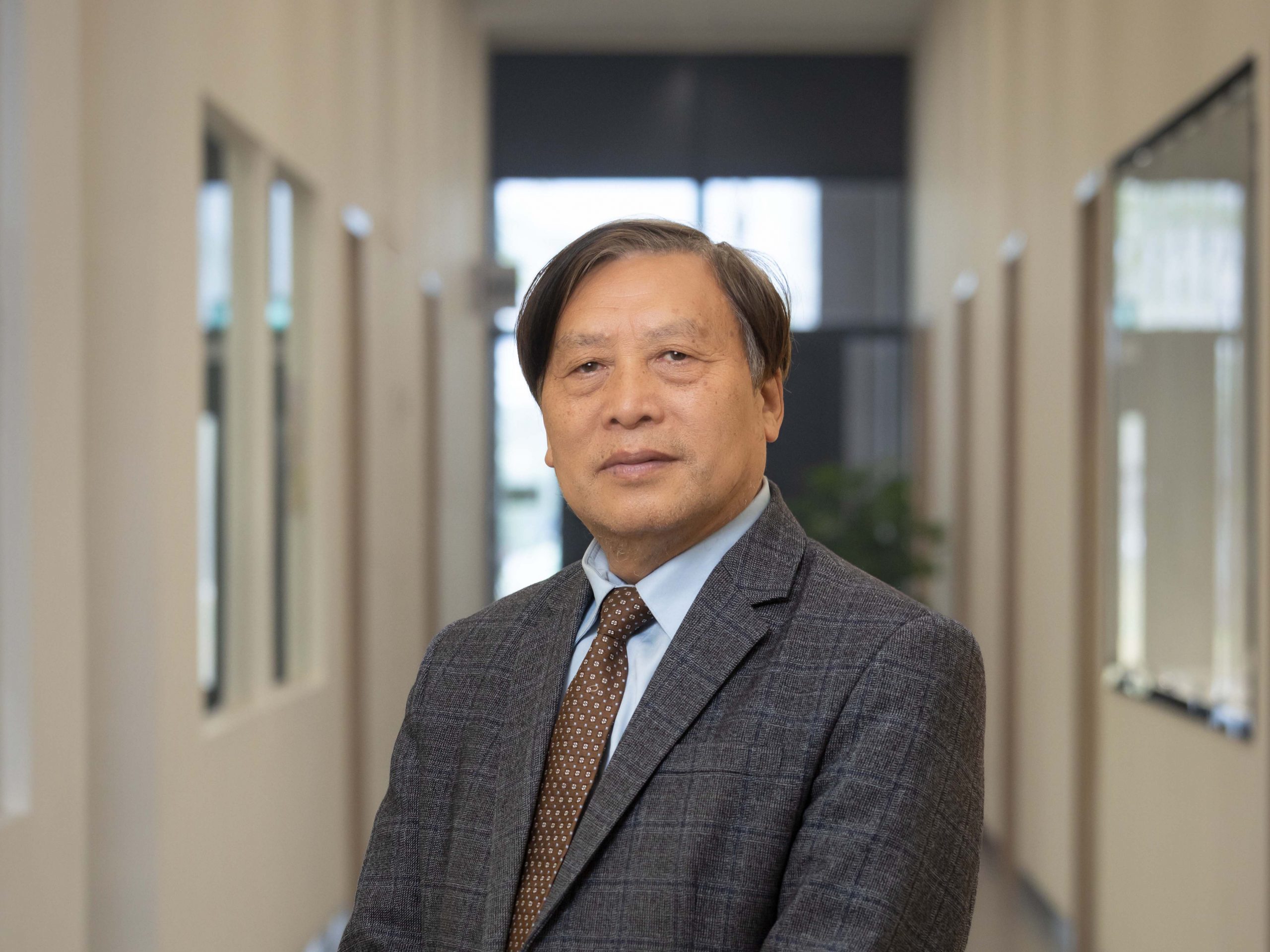
Prof Zhu Shoutong
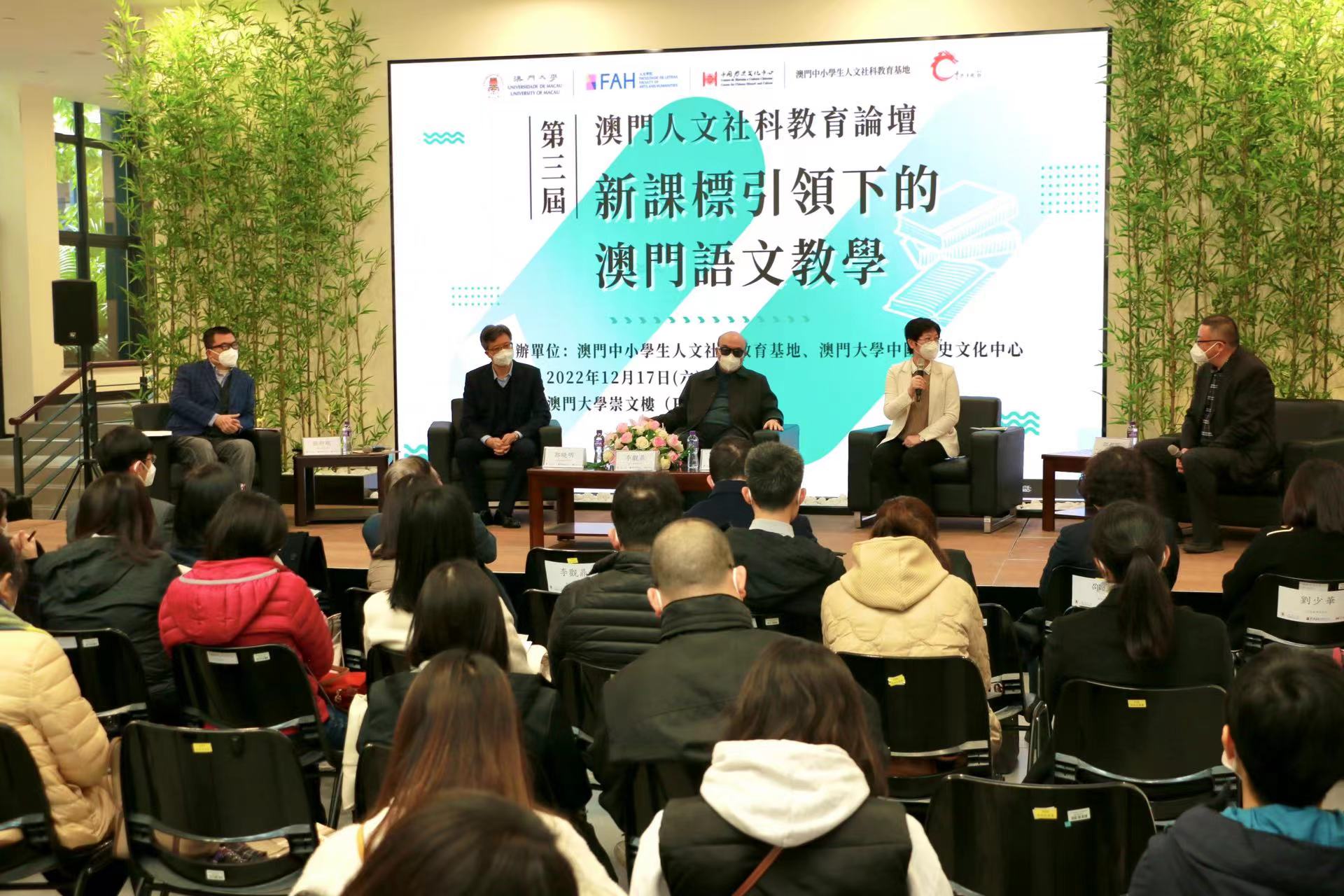
The Macao Forum on Humanities and Social Science Education
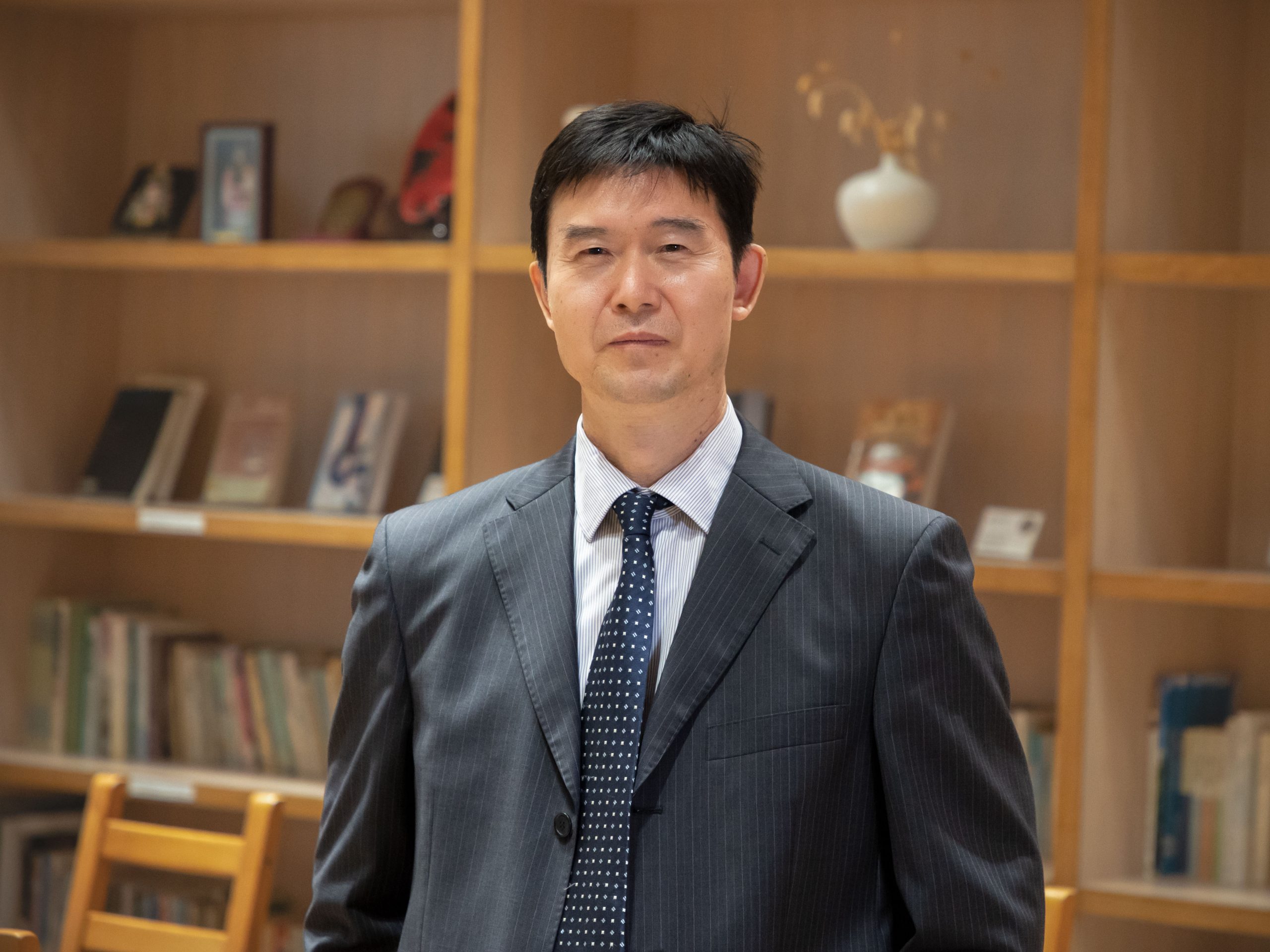
Prof Chen Zhong
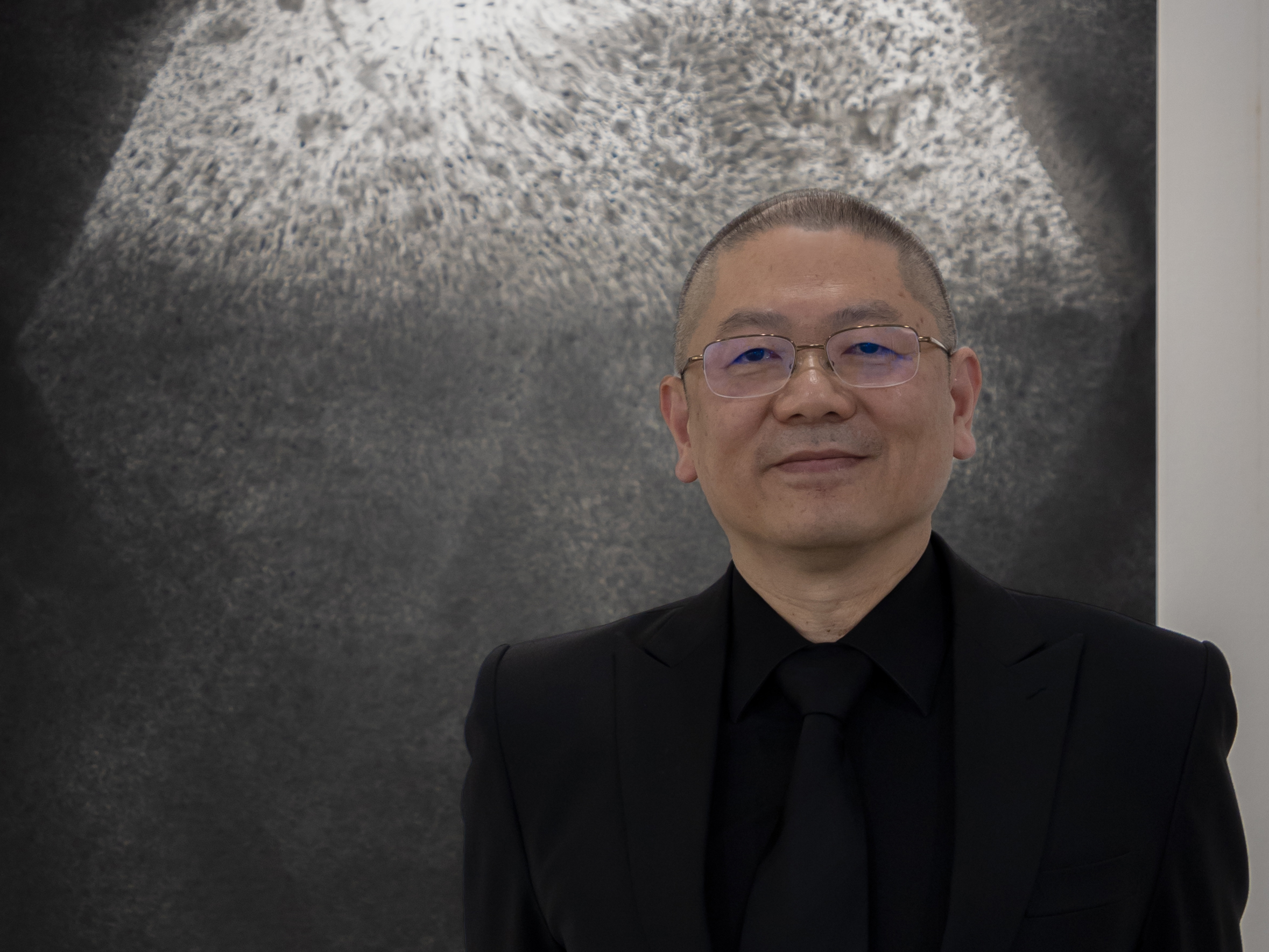
Prof Lampo Leong
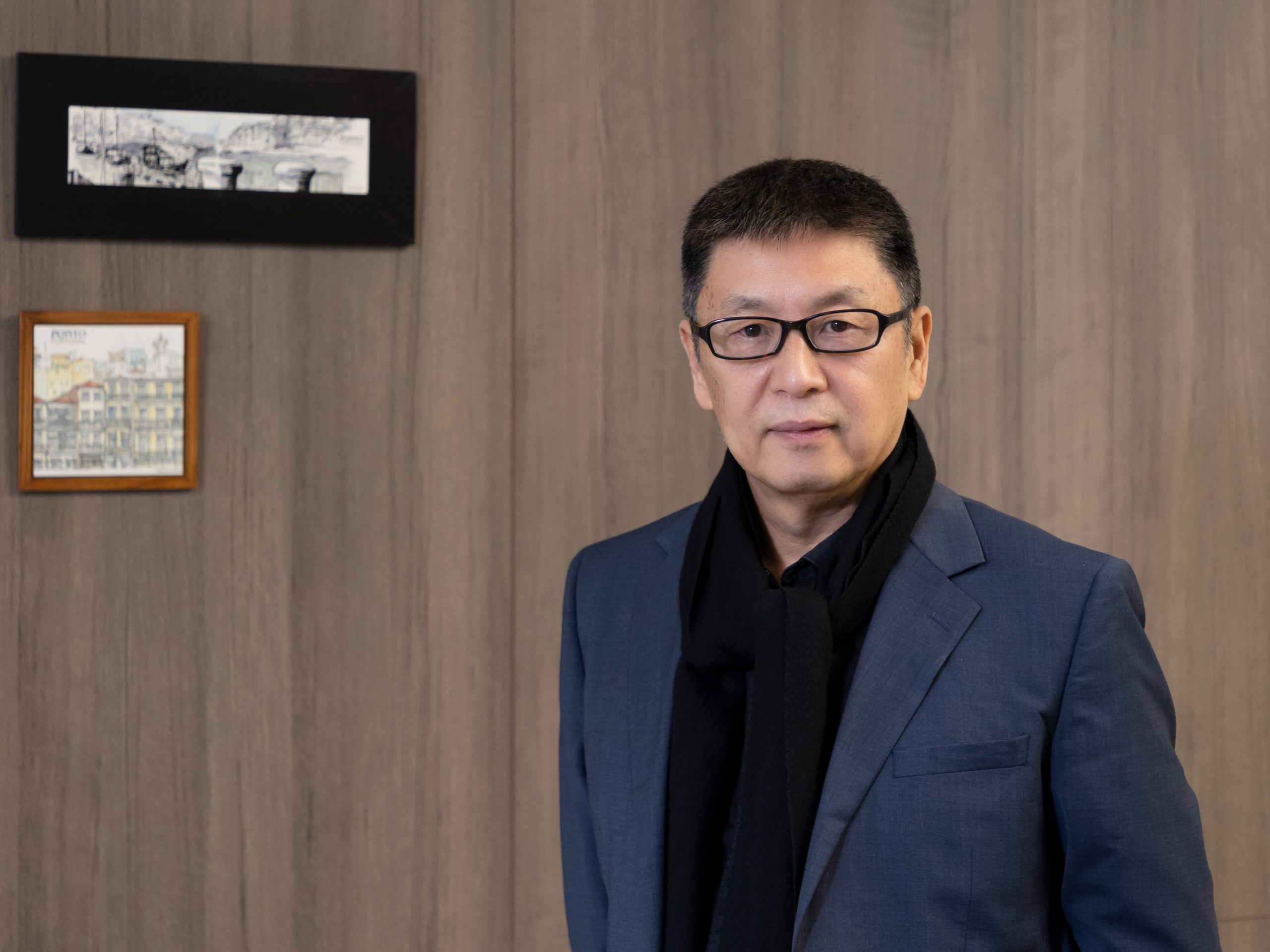
Prof Yao Jingming
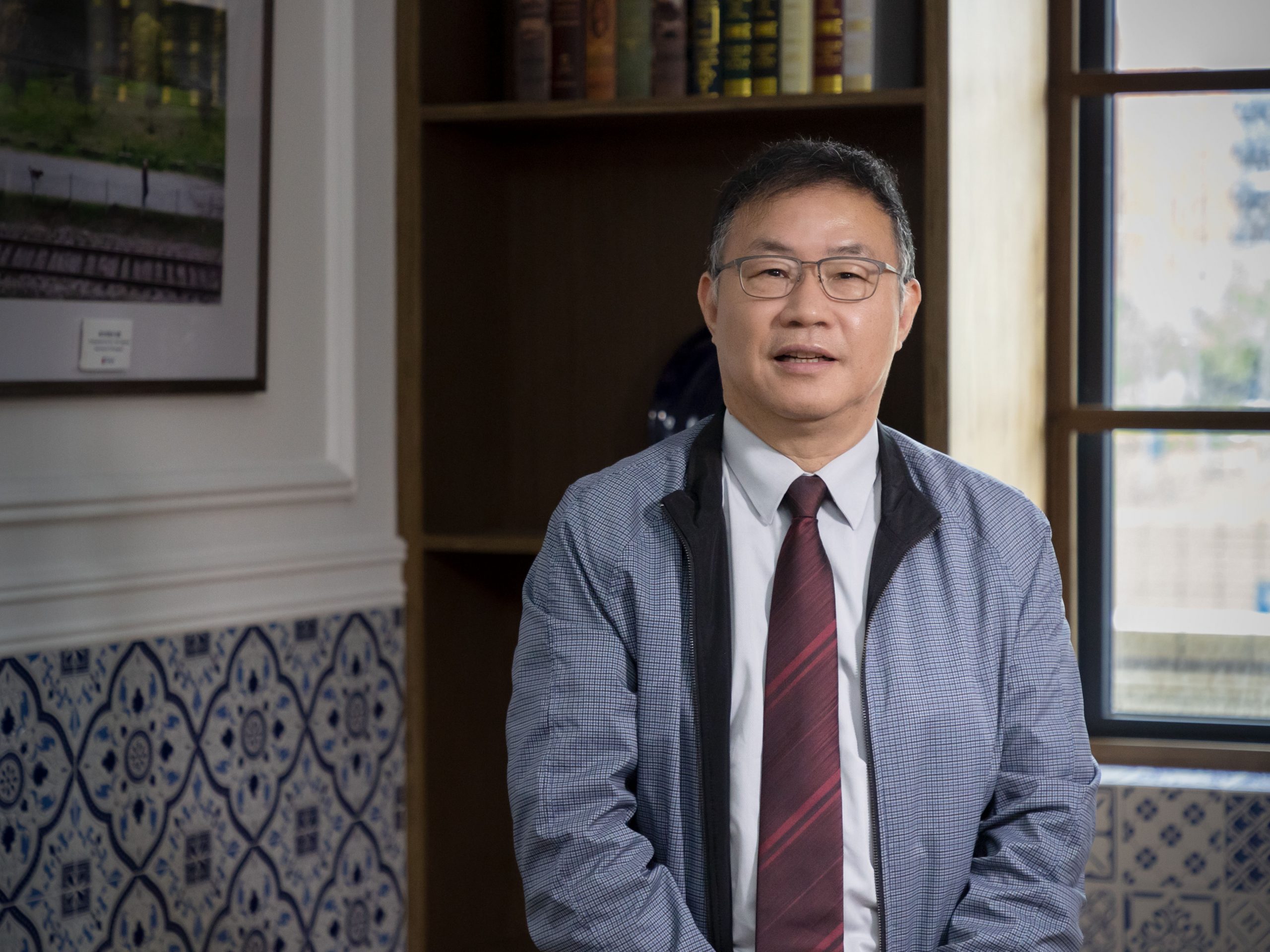
Prof Xu Jie
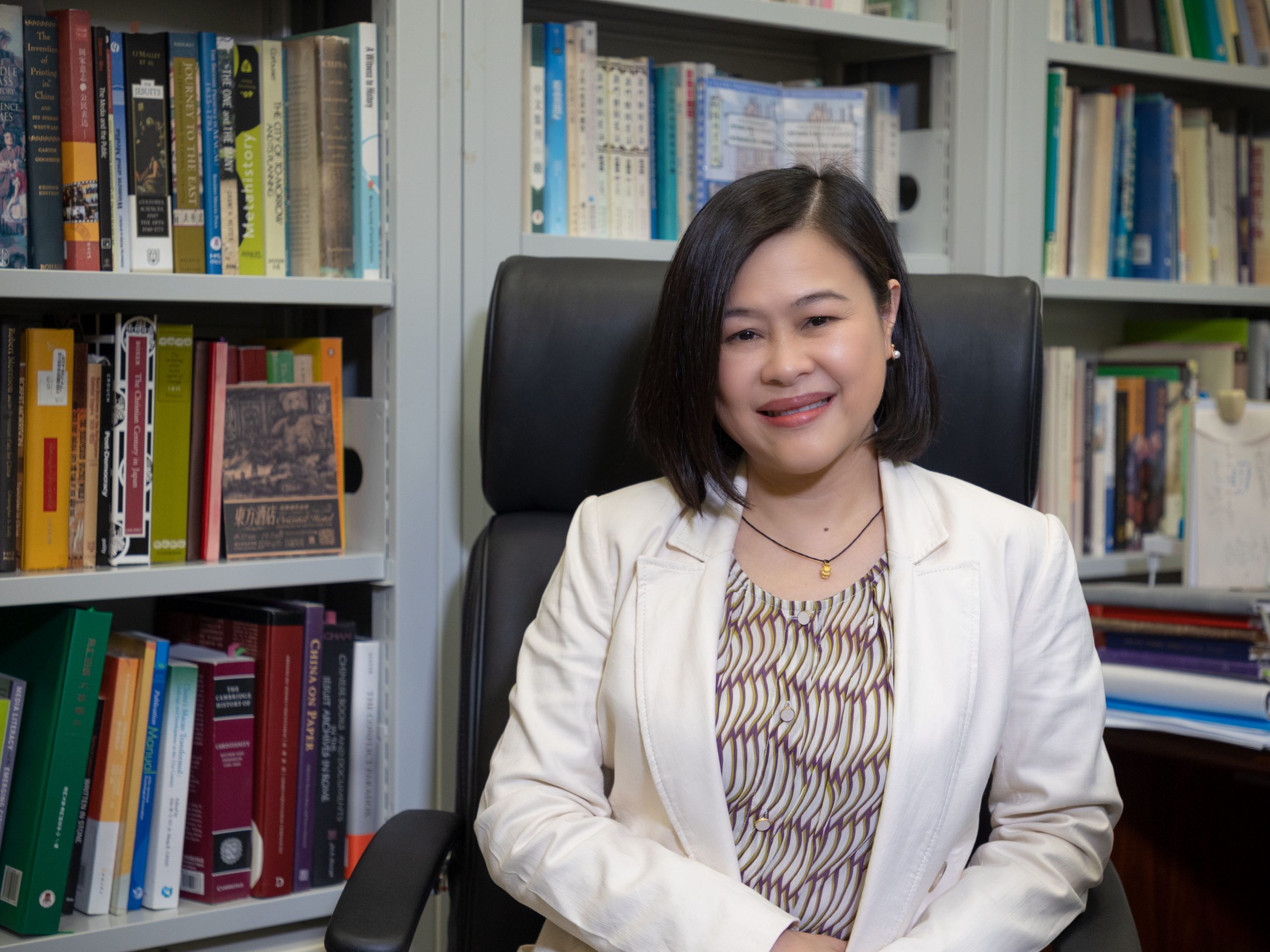
Prof Agnes Lam
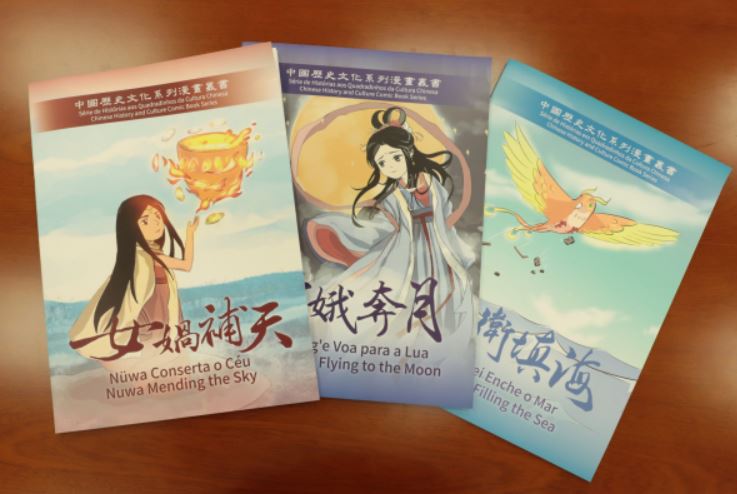
Chang’e Flying to the Moon
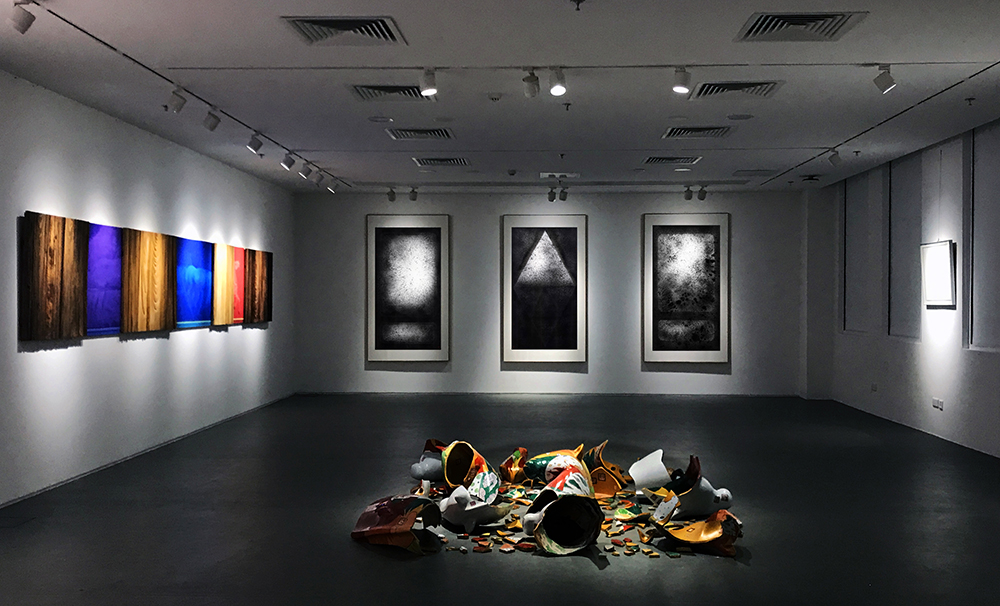
Centre for Arts and Design
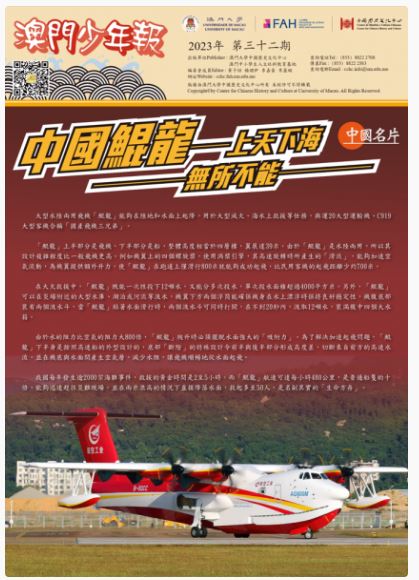
Macao Teenager’s Newspaper
